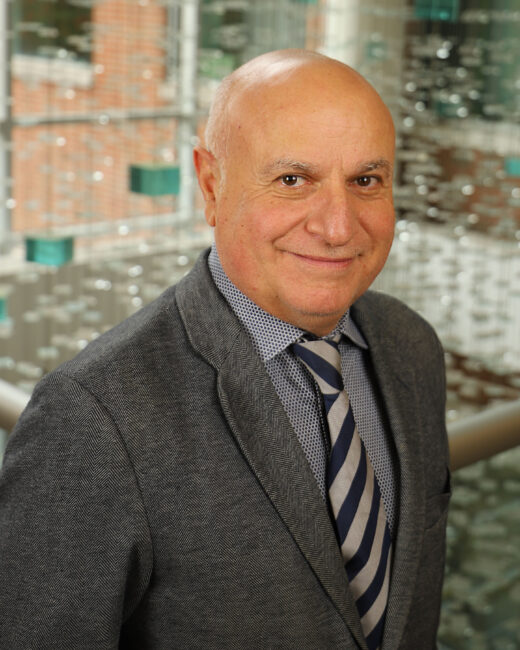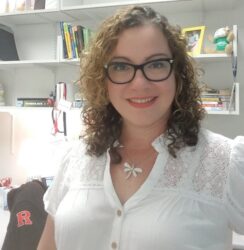
Philip Demokritou, Ph.D.
Henry Rutgers Chair and Professor in Nanoscience and Environmental Engineering – School of Public Health
Director of EOHSI Environmental and Population Health Biosciences Division
Message from the Director
Never before Environmental Health challenges have emerged in such a dramatic way jeopardizing not only the current state of planetary and human health but also those of future generations. Climate change, the emergence of infectious diseases, unsustainable agriculture and food systems, exposures to emerging chemicals and advanced materials are only a few examples of the 21st century challenges Environmental Health Scientists are called to assess and mitigate.
It is a great honor to be part of the EOHSI and the Director of this historic Division. Historically the main strengths of our Division are the interdisciplinary research and expertise of our faculty and the passion and diversity of our students who come across various Schools within Rutgers- School of Public Health, Medical School, School of Environmental and Biological Sciences and School of Engineering. Our research spans across molecular and epidemiological levels and includes novel environmental exposure assessment and quantitative science tools which enable us to assess the interactions of environmental stressors with biological and environmental systems and develop strategies to mitigate them. Last but not least, we aim high to recruit and educate the new generation of environmental health scientists with the ability to advance environmental health in all sectors of society both domestically and internationally.
Vision:
Safeguard our environment and protect public health through interdisciplinary research
Mission:
- To perform interdisciplinary research to solve emerging environmental health challenges of the 21st century
- To perform transdisciplinary research on environmental stressors across the exposure-disease continuum and assess their effects on biological and environmental systems. Our research spans across molecular to the epidemiological level utilizing a diversity of novel exposure and quantitative science tools;
- To produce well-educated scientists, engineers and environmental health professionals with the ability to advance environmental health in all sectors of society both domestically and internationally.
- To be local and global – Our Environmental health challenges transcend geographic, political, socioeconomic barriers and require concerted efforts in order to be addressed. We thrive to engage all stake holders at local, national and international level through collaborative research, student exchange and distance learning
Division News
Copyright © 2021, Rutgers, The State University of New Jersey







